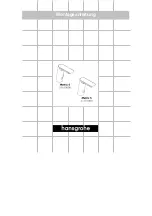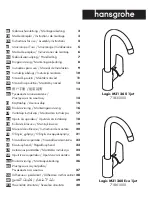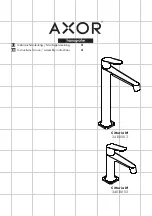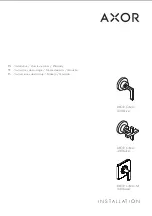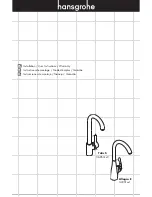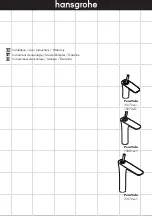
9
TISSUE BATH
MYOGRAPH
SYSTEM
- 720MO
- USER GUIDE
-- Stimulus 1 & 2 --
KPSS + 10 μM NA
Stimulate for 3 minutes
-- Wash out --
4 x with PSS
Wait 5 minutes
-- Stimulus 3 --
PSS + 10 μM NA
Stimulate for 3 minutes
-- Wash out --
4 x with PSS
Wait 5 minutes
-- Stimulus 4 --
KPSS
Stimulate for 3 minutes
-- Wash out --
4 x with PSS
Wait 5 minutes
-- Stimulus 5 --
KPSS + 10 μM NA
Stimulate for 3 minutes
-- Wash out --
4 x with PSS
Ready for experiment
Repeat 1 x
3.4 Endothelium function
The reasons for checking endothelium function may include:
1.
To check whether the relaxing function of the endothelium is intact. The procedure is performed to make sure that the en-
dothelium is not damaged during the dissection or mounting procedure.
2.
If an experiment requires removal of the endothelium this procedure is useful to check whether the endothelial cells were
successfully removed.
The procedure can be performed after the vessel segment has been heated, equilibrated and normalized. Preferably the proce-
dure should be done after performing a standard start to make sure that the vessel segment is viable.
The present procedure is for use with rat mesenteric arteries. Another procedure may be needed for other animal species and
tissue or vessel types.
3.4.1 Principles of checking endothelium function
Stimulating a vessel segment with acetylcholine causes a release of nitric oxide (NO, also known as EDRF) from the endothelium
cells and subsequent relaxation of the vascular smooth muscle cells. If the endothelium is undamaged by the dissection and
mounting procedures, then a substantial relaxation will occur. With complete removal or damaged endothelium, a partial relaxa-
tion or no relaxation to acetylcholine is observed.
It is important to note that the amount of NO or EDRF in a vessel is often dependent upon its size. In certain vessels, endothelium-
derived hyperpolarizing factor (EDHF) can contribute more or less than EDRF, and in other vessels the same stimulation with ACh
can promote release of endothelium-derived contracting factor (EDCF). Therefore, it is important to check the existing literature
in order to determine the expected response in your particular vessel with the given concentration of agonist.
3.3.1 Principles of the standard start procedure
The standard start procedure consists of a series of five stimuli and washout periods. The first two stimuli are performed using
a mixture of KPSS and 10 μM noradrenaline to give a maximum contractile response. The third stimulus is performed using a
mixture of PSS and 10 μM noradrenaline to give a maximum pure agonist mediated (α-adrenoceptor) contraction. The fourth
stimulus is performed using KPSS to give a depolarising contractile response (this stimulus also includes a component from neu-
rally released noradrenaline). The final stimulus is performed using a mixture of PSS and 10 μM noradrenaline. All solutions are
preheated to 37
o
C and aerated with a mixture of 95% O
2
and 5% CO
2
before use. Instructions for making the necessary solutions
are described in appendix 1.





















